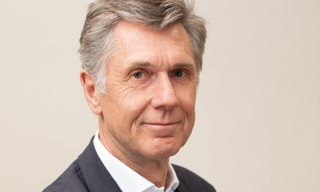A global standard to fight tax evasion will only work if it is applied effectively in all financial centers, Swiss private banker Yves Mirabaud writes in an essay for finews.first.
finews.first is a forum for renowned authors specialized on economic and financial topics. The texts are published in both German and English. The publishers of finews.com are responsible for the selection.
It is clearly not up to us, banks, to judge whether negative rates are pertinent or not, though I would like to point out that the method of their computation created an imbalance when it was first introduced. Indeed, the decision to exonerate funds equivalent to 20 times the required reserves has a very different effect on a bank that can invest its liquidities in mortgages, versus one whose only activity is wealth management.
This difference has unfavourably impacted the members of our associations. Over time, however, the imbalance has lessened, and the voices criticizing negative interest rates have become louder and more numerous. We no longer feel so alone!
«The Swiss economy has managed to weather the difficulties caused by the strong franc»
We understand of course that Switzerland is not free to do as it pleases, and that the Swiss National Bank (SNB) has to take into account other central banks policies. We can only hope that at some point in the future those policies will enable our central bank to loosen its stranglehold.
In the meantime, we are pleased to note that the Swiss economy and pension funds have managed to weather the difficulties caused by the strong franc, although they are increasingly feeling its weight. Since we have no control over negative interest rates, what else can be done to foster the development of the Swiss financial centre?
There are several possibilities, among which our two main priorities are market access and a reasonable and equitable implementation of international standards, especially with regards to the automatic exchange of information.
«Restrictions on cross-border services place us at a competitive disadvantage»
On market access, it is vitally important for our banks to be able to serve their clients in their country of residence rather than passively wait for them to come to us in Switzerland.
Restrictions on cross-border services place us at a competitive disadvantage. Moreover, this handicap is likely to worsen given the protectionist direction which certain countries appear to be taking. Setting up foreign branches is one solution, albeit a costly one. If banks were allowed to provide their services from Switzerland, the jobs and tax revenues connected with those clients would continue to benefit our country.
«We also worry about our clients' physical safety»
Turning now to the question of automatic exchange of information, it goes without saying that no global standard against tax evasion can succeed unless it is diligently applied by all international financial centres. Before providing tax information to a given country, therefore, the Swiss Government should make sure that Switzerland is not going it alone.
Additionally, all possible means must be brought to bear on the U.S., whose Fatca law is significantly less reciprocal than the OECD standard. Another point of concern is the confidentiality of the tax information exchanged, especially in Latin America, Asia and Russia.
Our concerns in these cases are not tax related matters; we also worry about our clients' physical safety, given the high risk of corruption and political manipulation in some countries. The Swiss government must first verify that confidentiality protections are in place, and if no guarantees can be provided, delay the inception of exchange.
We call for Switzerland to adopt regulations that are as stable and as light as possible, freeing us to focus our energy on activities more useful to our clients than filling out yet another form.
Yves Mirabaud, born in 1966, is the Chairman of the Association of Swiss Private Banks and senior partner at Mirabaud, one of the oldest private banks in Switzerland. The institute was founded 1819 in Geneva. Yves Mirabaud has a diploma from the Institut Universitaire des Hautes Etudes Internationales in Geneva. After five years at various banks in Geneva, Zurich, Boston and New York, he joined the family-owned bank in 1993.
Previous contributions: Rudi Bogni, Peter Kurer, Oliver Berger, Rolf Banz, Dieter Ruloff, Samuel Gerber, Werner Vogt, Walter Wittmann, Alfred Mettler, Peter Hody, Robert Holzach, Craig Murray, David Zollinger, Arthur Bolliger, Beat Kappeler, Chris Rowe, Stefan Gerlach, Marc Lussy, Nuno Fernandes, Beat Wittmann, Richard Egger, Maurice Pedergnana, Didier Saint-George, Marco Bargel, Steve Hanke, Andreas Britt, Urs Schoettli, Ursula Finsterwald, Stefan Kreuzkamp, Katharina Bart, Oliver Bussmann, Michael Benz, Peter Hody, Albert Steck, Andreas Britt, Martin Dahinden, Thomas Fedier, Alfred Mettler, Frédéric Papp, Brigitte Strebel, Peter Hody, Mirjam Staub-Bisang, Guido Schilling, Claude Baumann, Adriano B. Lucatelli, Nicolas Roth, Thorsten Polleit, Kim Iskyan, Dan Steinbock, Stephen Dover, Denise Kenyon-Rouvinez, Christian Dreyer, Peter Kurer, Kinan Khadam-Al-Jame, Werner E. Rutsch, Robert Hemmi, Claude Baumann and Anton Affentranger.


























